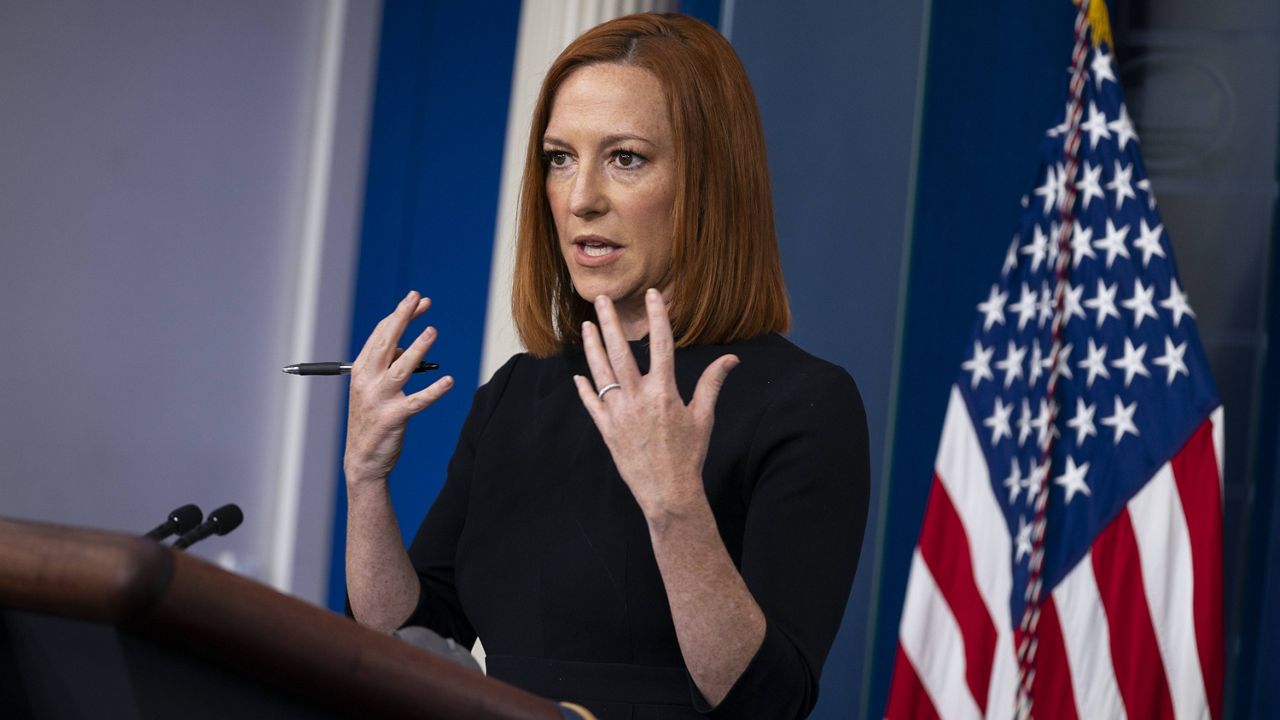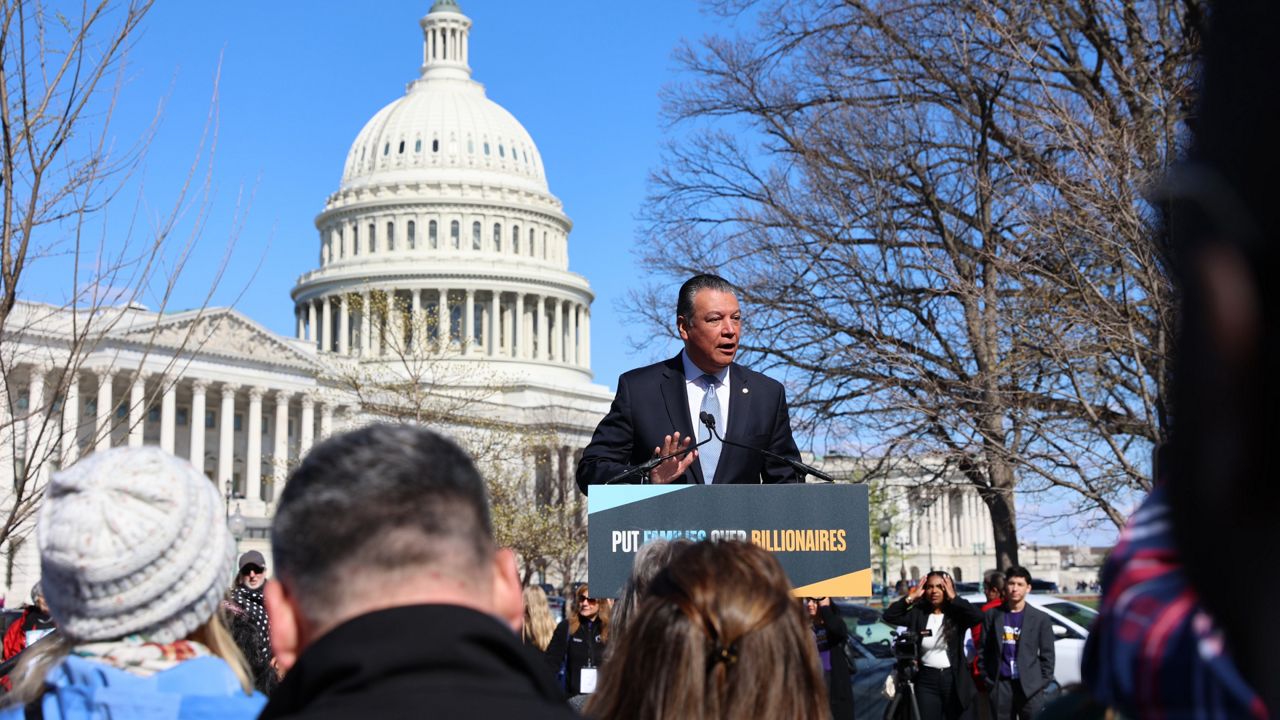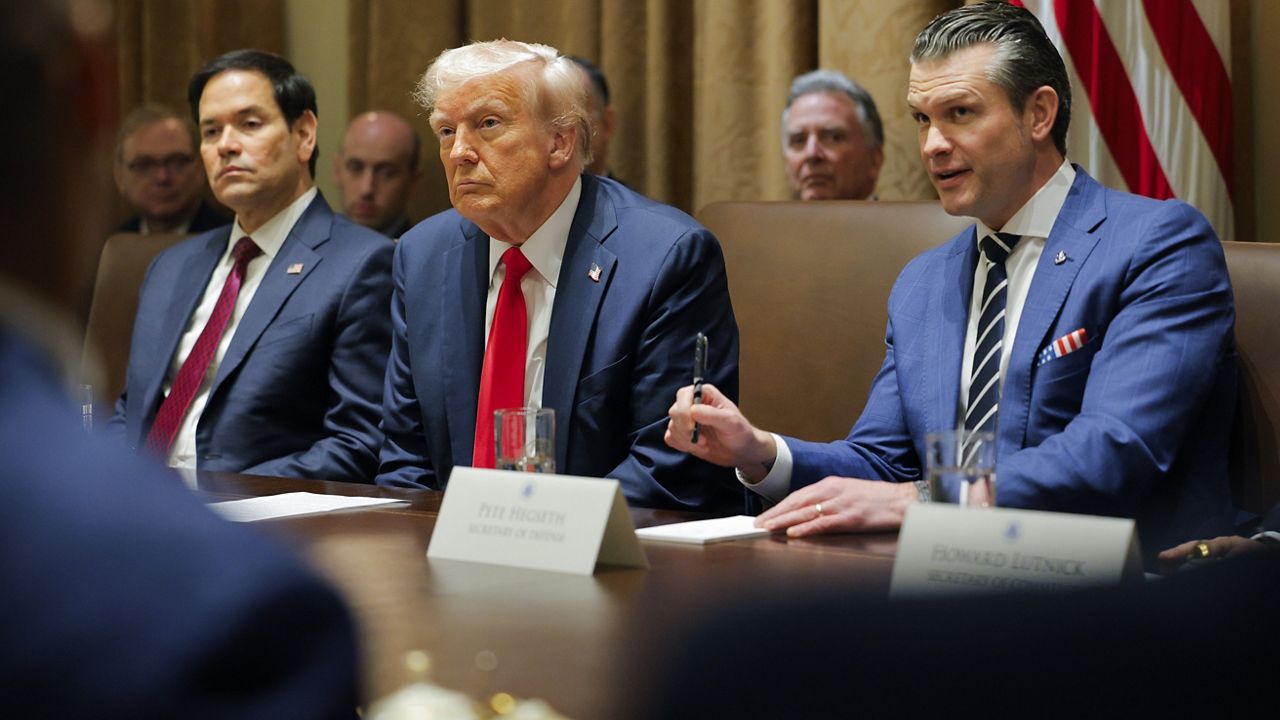With a full day to digest the Republicans’ counterproposal to President Joe Biden’s $2.3 trillion infrastructure plan, the White House is admittedly more receptive to it than it was to the GOP’s COVID-19 relief pitch earlier this year.
What You Need To Know
- White House press secretary Jen Psaki said Friday "it's true" the president is more receptive to it than it was to the GOP’s COVID-19 relief pitch to the president earlier this year
- On Thursday, a group of GOP senators unveiled a skinnier infrastructure proposal amounting to $568 billion over five years
- Psaki said the administration is "quite open to the mechanisms of how his ideas can move forward" and that there is more time this time to iron out a deal
On Thursday, a group of GOP senators unveiled a skinnier infrastructure proposal amounting to $568 billion over five years.
The move was reminiscent to when Republicans countered Biden’s $1.9 trillion virus relief plan with their own $600 billion package. Biden quickly dismissed that proposal as insufficient, and Congress passed his plan along party lines.
On Friday, White House press secretary Jen Psaki said the administration is still reviewing the GOP’s suggestion, but she said “it’s true” that the president is more open to the Republicans’ latest efforts, in part because there’s more time to iron out a deal.
“The American Rescue Plan was a plan and a proposal that was meeting what we felt was a crisis situation, which was getting the pandemic under control, putting millions of Americans back to work,” Psaki said. “The president felt, as he said many times, as I said many times, there was an urgency in moving that forward. And there was less flexibility because he felt the size of that package needed to meet the moment.
“We are quite open to the mechanisms of how his ideas (on infrastructure) can move forward. It can be in a number of different proposals that can be worked through negotiating between members of Democrats and Republicans.”
The Biden administration will review the GOP plan and hold discussions about it in the coming days, and the president will invite the Republicans who sponsored it to the White House, Psaki said.
The administration has not yet responded to any of the details of the plan.
“The president's only red line is inaction,” Psaki said. “We want to have an exchange of ideas on both sides, and from both sides of the aisle.”
Since being elected Biden has spoken often about his desire to be a unifier and a bipartisan president. But faced with stiff resistance from Republicans on practically every issue, he’s leaned on executive orders and the budget reconciliation process to carry out his agenda so far.
The president has argued that infrastructure improvements are a bipartisan issue, but his proposal is too broad in many Republicans’ eyes, as it redefines “infrastructure” to include housing, care for the elderly and disabled, electric vehicle stations, and manufacturing. They’ve also balked at his plan to pay for the package by hiking taxes on families earning more than $400,000 a year, as well as the corporate tax rate from 21% to 28%.
Moderate Democrat Joe Manchin of West Virginia, a key vote in the 50-50 Senate, also opposes raising the corporate tax rate to 28% — he has indicated he’d support bringing it to 25%.
“We're very open to a range of options,” Psaki said of paying for the package. “He (Biden) has some lines in the sand we've talked about, including … not being on the backs of the American people.”
The GOP plan, introduced by Sens. Shelley Moore Capito of West Virginia, Roger Wicker of Mississippi, Pat Toomey of Pennsylvania and John Barrasso of West Virginia, is broken down into nine specific areas:
- $299 billion for improving roads and bridges
- $61 billion for upgrading public transit systems
- $20 billion for railways
- $35 billion for drinking water and wastewater treatment
- $13 billion for motor vehicle, highway traffic, and pipeline and hazardous material safety
- $17 billion for ports and inland waterways
- $44 billion for the nation’s airports
- $65 billion for broadband infrastructure, including “additional spending”
- $14 billion for water storage facilities
Spectrum News’ Rachel Tillman contributed to this report.
Ryan Chatelain - Digital Media Producer
Ryan Chatelain is a national news digital content producer for Spectrum News and is based in New York City. He has previously covered both news and sports for WFAN Sports Radio, CBS New York, Newsday, amNewYork and The Courier in his home state of Louisiana.










